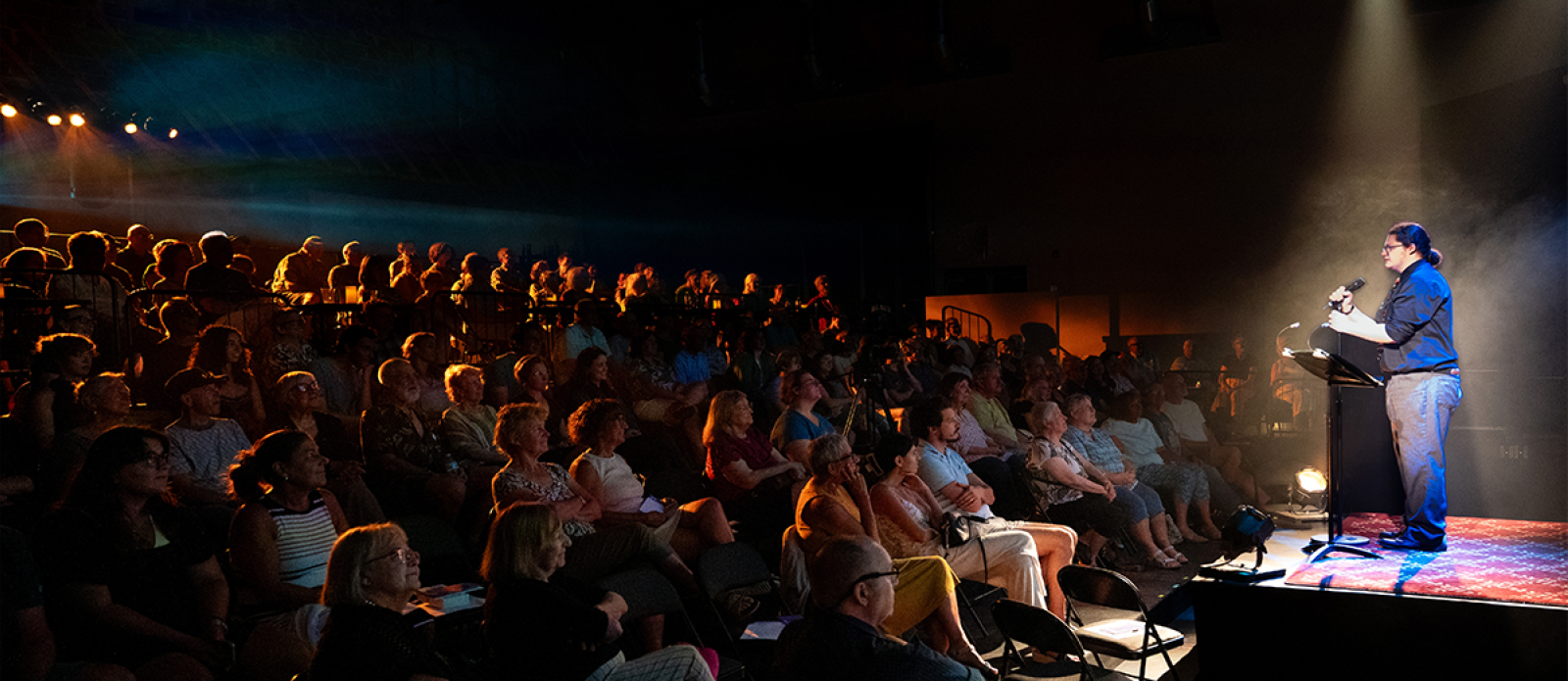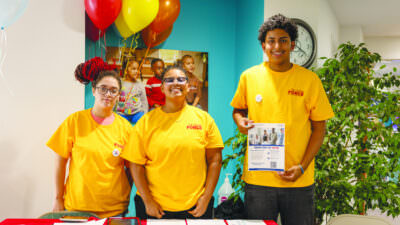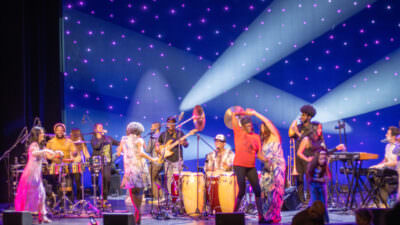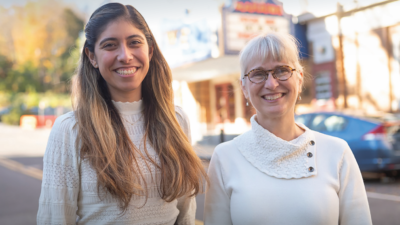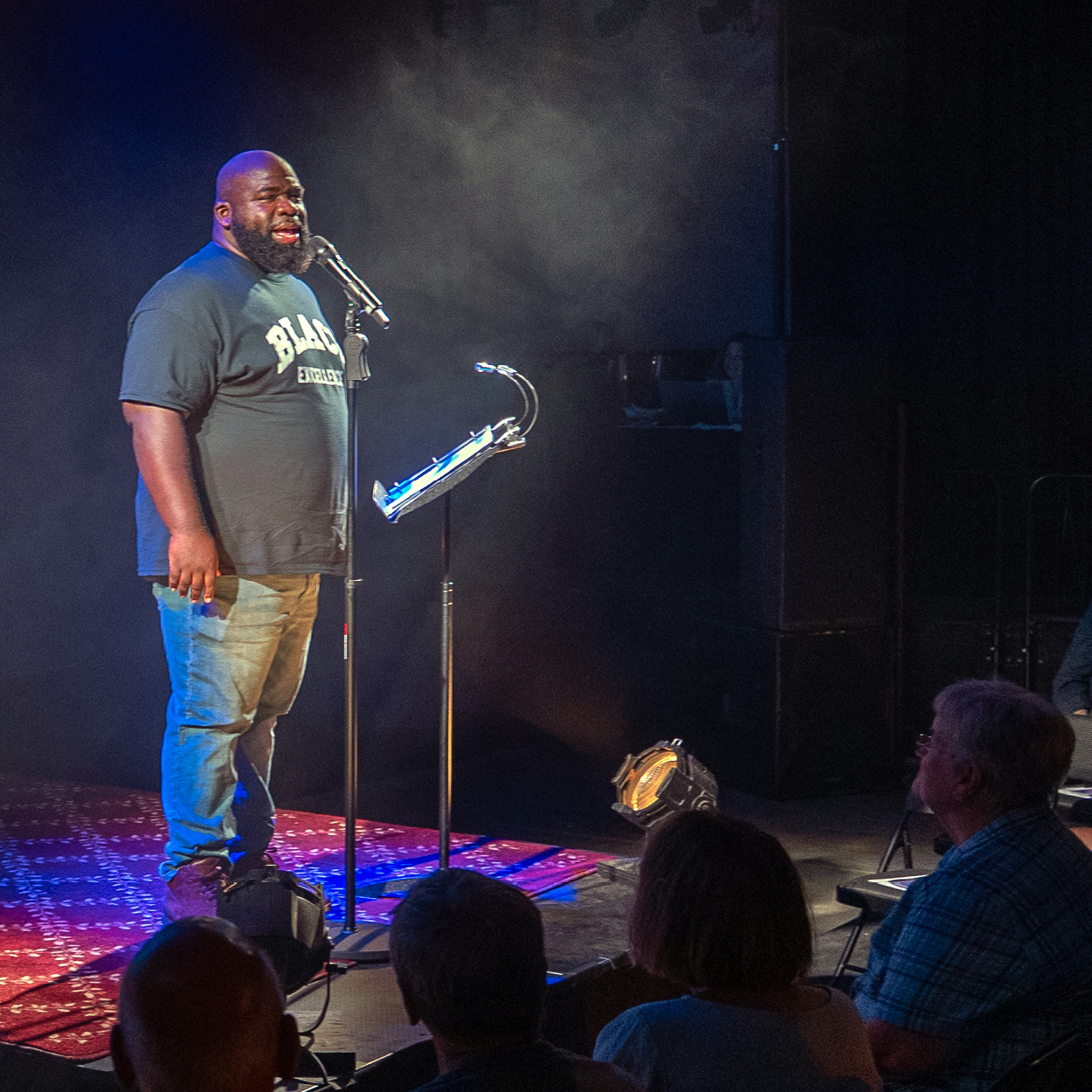
When architect, artist, and finance professional Yina Moore saw the vacant Adams Theater for sale, she had a vision to give it a new life as a cultural hub for top-tier performances and community events where everyone was welcome. She purchased the landmark building on Park Street in 2021, and in 2023, as Artistic Director, opened the doors to the public on a transformed venue that could seat 300 people.
Berkshire Taconic has supported the theater's revitalization with a variety of grants from the outset. The William J. and Margery S. Barrett Fund for Adams, Cheshire, and Savoy provided over $55,000 for structural improvements and additions, which included pipe work, lighting, and a professional console to support performances. In 2024, our Arts Build Community (ABC) Incubation grant supported the theater’s Artists Residency Program, which encourages underrepresented artists to experiment and engage the community in their creative process. This year, Adams Theater has been awarded its first BTCF Equity Fund grant to host visiting artists Arts for Social Cohesion to facilitate community workshops for first-time storytellers.
The upcoming storytelling workshops kick off in October and will build on the success of a six-month Story Slam project the theater hosted this past summer, in partnership with New York-based Lifejacket Theater. Lifejacket’s mission, in alignment with the theater’s, is to bridge cultural divides and uplift historically marginalized stories. Nine local storytellers worked with coaches and were given tools to transform their personal life experiences into expressive narratives.
In August, these storytellers bravely entered the spotlight to share “really authentic and beautiful stories,” Moore says, interpreting the theme of resilience to an audience of over 200 people. “Our rural community faces cultural isolation, economic disparity, and a lack of inclusive artistic spaces. Many residents—especially those from low-income, immigrant, or historically marginalized backgrounds—lack access to high-quality arts experiences that reflect their lives.” Moore, who emigrated to America from China at 18, shared her experience of navigating shifting family dynamics as an immigrant. Some storytellers crafted narratives about their relationship to the Berkshires and how they learned to create meaningful lives in Adams. A high school junior shared their story of overcoming anxiety to fulfill their dream of becoming a writer and stage performer. Each story was an invitation for audience members to see a part of their own life experience reflected back to them from the stage.
The personal stories, and the courage harnessed to share them, Moore says, showed the community “how powerful storytelling can be just for a normal person,” and just importantly, that Adams Theater could be a place where they could learn how to do it themselves. Moore asked herself, “How do we expand this impact? How do we build upon this?”
The theater’s next storytelling project, supported by the Equity Fund grant, is the answer. Boston-based Arts for Social Cohesion (ASC) Co-Artistic Directors Guy Mendilow, musician and composer, and Regie Gibson, Poet Laureate of Massachusetts, will facilitate workshops for first-time storytellers. Moore says that workshops like these allow the facilitators to “introduce themselves to the community,” and establish trust by explaining their methodology.
The first of their two workshops, Ponder to Page, takes place October 21. Mendilow and Gibson will show participants how to transform everyday moments into resonant stories that foster empathy and emotional connection. The second workshop, To Those Who Shape Us, will take place in June 2026 in the form of a storytelling dinner; participants are invited to reflect and share over a communal meal. Each guest will tell a short story about someone who shaped who they are; the evening will conclude with a celebratory toast dedicated to those people. The project will culminate in the June 2026 ASC show, "Different Ships, Same Boat," which blends narration, poetry, and music to explore themes of identity, migration, and belonging.
Moore believes that art and inclusivity are crucial ingredients for community-driven revitalization and social connectivity. The theater, led by a board that is 40% BIPOC, seeks to offer events that allow audiences to take joy in the creative process and experience connection across differences. Moore finds it gratifying to see increasing numbers of people from within and outside the county, with a variety of interests, visit the theater and see it as a touchpoint for themselves. With each event, she says, "we can expand the circle we want to reach.”

